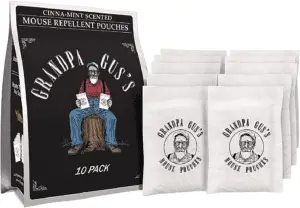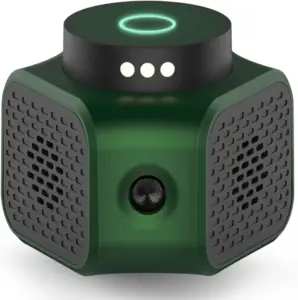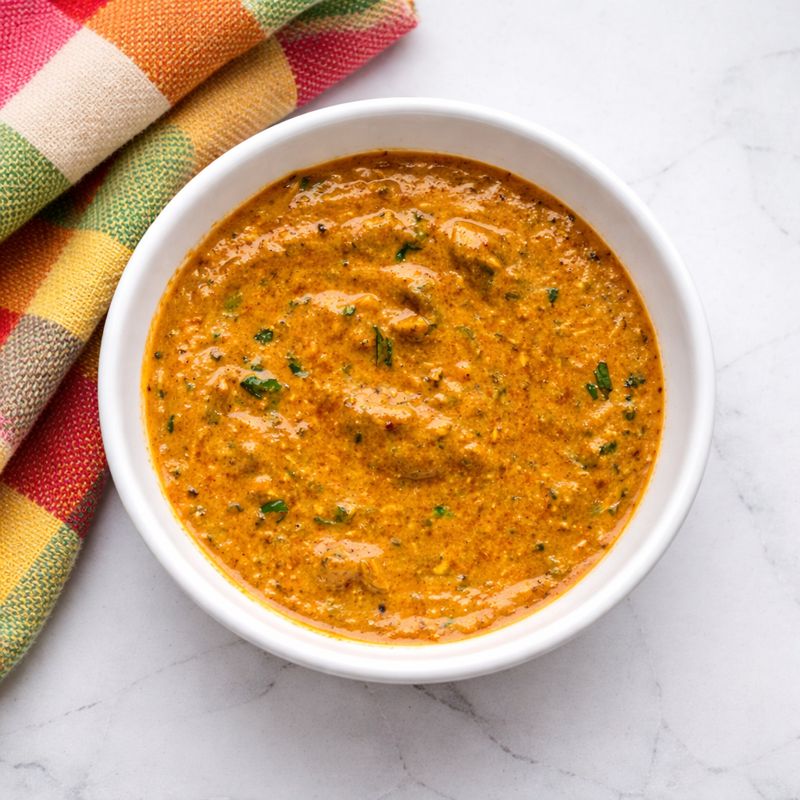Share via:
As winter approaches, it’s not uncommon to find signs of mice in your grill. Mice are attracted to the warmth of the grill and can leave behind rat droppings and urine that can contaminate surfaces. This raises the question of whether it’s safe to use the grill after a mice infestation and how to properly clean and sanitize it.

In this article, I will explore the safety concerns of using a grill after mice infestation, the reasons why mice nest in grills, and the steps you can take to keep mice out of your grill.
I will also discuss how to properly clean and sanitize a grill after a mice infestation and what to do if you find a mouse in your grill.
Table of Contents
Is it Safe to Use Grill after Mice Infestation?
No, it’s not safe to use a grill after a mouse infestation without cleaning and sanitizing it first. Mice can carry and transmit a variety of diseases, as well as leave droppings and urine that can contaminate surfaces. Scrubbing the grill with soap and water is not enough, as it may not effectively remove all contaminants left by mice. It is recommended to disinfect the grill with vinegar after scrubbing it.
Mice can contaminate food with feces and urine, which can cause food poisoning. They can also transmit diseases, such as hantavirus, through their droppings. Therefore, it is important to take steps to get rid of mice and clean up any contamination they have left behind.
Reasons for Mice Nest in Grill
As a grill owner, you may be wondering why mice are attracted to your grill. Here are some common reasons why mice may nest in your grill:
1- In Search of Food
Mice are attracted to grills that have leftover food scraps and grease buildup. The warmth of the grill also attracts mice, especially in cold weather.
If you’re not using your grill regularly, it’s essential to clean it and store it in a dry and cold place to prevent mice from being attracted to it.
2- To Nest in a Warm Place
Grills provide shelter and warmth for mice, especially during cold weather or bad weather conditions.
If it is cold outside or bad weather, a grill can provide mice with a warm, dry place to stay. Mice also like to build nests, and a grill can be a perfect place for them to do this.
The leftover food or grease buildup in the grill also provides a food source for mice.
Mice make nests in grills because they are looking for a safe and hidden place to build a nest and raise their young.
Additionally, grills are often stored in outdoor areas like patios, garages, and awnings, which provides a good location for mice to build their nest away from predators.
Why Keep Mice Out of Grills?
Other than disgust, there are several reasons to keep mice out of grills. The following are a few:
1. Mice in Grill Can Cause Fires
Mice nests and mouse droppings in grills can clog burners and create a fire hazard.
Mice can cause fires in the grill by chewing through the gas line. This damage can create a dangerous and potentially deadly situation because the gas line supplies the fuel to the grill.
If the gas line is damaged, it can leak, ignite, and cause a fire.
2. Grill Damages Caused by Mice
Mice can cause serious damage to grills by gnawing on wires and damaging electrical wiring, gas lines, and other parts of the grill.
This damage can create a dangerous and potentially deadly situation because the gas line supplies the fuel to the grill. If the gas line is damaged, it can leak, ignite, and cause a fire.
Therefore if you have a mouse in grill, it’s important to take steps to get rid of them before they cause any more damage.
3. Mice Can Spread Disease
Mice in grill can cause health hazards, as they carry diseases and parasites that can be transmitted to humans.
These little critters can contaminate your food and spread diseases such as hantavirus, leptospirosis, and Salmonella. Therefore, it’s important to keep mice out of grills to avoid the spread of diseases.
4. Odors and Unsanitary
Rat dropping and urine in grill can cause an unpleasant smell and unsanitary conditions, especially if they are not cleaned up in a timely manner.
Rat droppings in grills can attract other pests, such as flies and cockroaches, which can further contribute to unsanitary conditions.
5. Lowering aesthetic appeal
Mice nest in grills and droppings can make a grill look unsightly and unappealing.
6. Pest control cost
It’s much cheaper to prevent mice from entering the grill than to pay for professional extermination services later on.
How to Clean A Grill After Mice?
Please make sure you understand what to do here before taking any action. Because mouse nests in BBQ are not harmless, they must be handled carefully. Mice are hantavirus carriers.
First, 3 things will effectively kill hantavirus: heat, UV light, and chlorine bleach.
Keep in mind that the viruses on the surface of any exposed items in your BBQ will only be killed by heat and UV.
First, the virus found in the nests, the excrement, and the urine won’t be wiped out by it. Regardless of heat or UV exposure, those things must be regarded as contagious.
Second, because the hantavirus is airborne, it is not advisable to disturb any of the nests without PPE.
Third, the hantavirus has a 30–40% mortality rate.
You DO NOT want to become ill.
Understand that to clean a mouse nest in grill, you are risking far more than a tummy ache.
If you have ever cleaned rat droppings in BBQ grill, you know it’s not a fun task. But it’s important to do it regularly to prevent disease and keep your grill looking its best. Here are the steps I follow to clean my grill after mice have nested in it.
Things You Need to Clean Mouse Droppings In Grill
Here’s a quick rundown of the things you’ll need to clean the mouse poop in grill:
- Gloves,
- Face protection
- PPE for breathing protection
- Scrapper
- Brush
- Pressure washer
- Scrub brush
- Degreaser
How to Clean Gas Grill after Mice?
If you have ever cleaned rat poop from a grill, you know it’s not a fun task. But it’s important to do it regularly to prevent disease and keep your grill looking its best.
How to clean mouse droppings from grill? Following are some steps for How to clean rat poop from grill:
Step 1: Disassemble Grill
First, I disassemble the grill.
Disassembling the grill will give you better access to clean the nooks and crannies where mice may have left droppings or other contaminants.
Step 2: Use Scrapper and Wire Brush to Clean Rat Poop in Grill
There are several ways to clean mouse poop in bottom of grill, but we recommend using a scraper and wire brush.
First, use the scraper to remove as much mouse poop in BBQ as possible. Then, use the wire brush to scrub the remaining poop and dirt, and grime off the grill.
Step 3: Use a Pressure Washer
Once you have scrapped out mice poop from the grill and other dirt, use a pressure washer to remove all the dried waste.
Step 4: Apply Degreaser
Apply degreaser on the grill to get rid of any oily and greasy residue on the grill to clean it properly.
Step 5: Re-use Pressure Washer
Once the degreaser has removed all the stubborn oily residue and grease, use the pressure washer again, as its high pressure will remove much of the dirt.
Step 6: Use a Scrub Brush
A scrubbing brush can remove any dirt or stain on the grill, ensuring that your grill is completely cleaned off.
Step 7: Use the Dry Towel
Finally, you can dry your grill with a tiny piece of a dry towel, as it removes all excess dirt and any grease left. At this point, your grill is completely cleaned.
Step 8: Heat Treatment
Turn on the grill to high heat for about 15-20 minutes to further sanitize the surfaces. This will help burn off any remaining contaminants.
Step 9: Dispose of Cleaning Materials
Carefully dispose of gloves, masks, cleaning cloths, and any materials used during the cleaning process.
Step 10: Prevent Future Infestations
Seal any openings or gaps that mice could use to access the grill. Store grill accessories in airtight containers to prevent attracting pests.
How to Sanitize a Grill after Mice Infestation?
When cleaning your grill, sanitizing it is the most important part of the cleaning process. You can use various food grade chemicals to disinfect mouse poop in bottom of grill.
To sanitize grill after mice use a food-grade sanitizing solution, such as a bleach solution made with 1.5 cups of unscented liquid chlorine bleach per gallon of water (or 1 part bleach to 9 parts water).
Make bleach solution fresh before use.
You can also use a solution of water and white vinegar (1:1 ratio) or a disinfectant spray to thoroughly spray or wipe down the entire grill.
Now soak grill grates, burners, and other parts of the grill that come into contact with food for at least 5 minutes before rinsing it off with water.
I would give it another wipe after this with bleach.
After you think you’ve bleach-washed everything and there are no particles left on the BBQ, leave it out in the sun for a few hours.
Finally, once it is dry, clean, and has no mouse-related particles on it anywhere, you can fire it up for a bit to kill anything that might be left with heat.
It is important that you do not just fire it up, or you will blow potentially hantavirus infected mouse poop around the inside of the BBQ (and then out the exhaust).
How to Disinfect grill after mice?
Some people have suggested that turning the BBQ on to a high temperature would just kill everything.
I disagree. Turning the BBQ on before you wipe down mouse poop will cause poop dust to be caught up in the convective currents.
This dust will blow around inside the BBQ and escape onto non-BBQ surfaces nearby before it gets hot enough to die.
What To Do If You Find A Mouse In Your Grill
If you come across a mouse in your grill, maintain composure and put on protective gloves and a mask to prevent potential contamination.
Carefully move the grill away from walls and structures, opening the lid to create an escape route.
Gently guide the mouse to leave using a broom or brush if needed.
Once the mouse is out, clean and disinfect the grill to ensure a safe cooking environment.
Seal any openings to prevent future access for rodents. If unsure, consider seeking professional pest control or cleaning assistance. Prioritize safety and sanitation to maintain a clean and pest-free grilling area.
6 Steps On How To Keep Mice Out Of Gas Grill/Charcoal/Griddle?
I noticed a mouse in my grill a few months back, and upon reading experts’ advice on keeping rats out of the grill, I found a few useful tips that helped me get rid of them:
1. Use Mouse Traps:
A simple and effective way to keep mice out of your grill is to set mouse traps around the perimeter.
This will help keep the mouse population down and reduce their chances of getting into your grill.
2. Use Grill Covers
One of the simplest methods to keep mice out of your grill is to use heavy duty grill covers. Grill covers can provide a physical barrier that mice cannot penetrate. Cover your grills when not in use.
3. Keep the grill clean
Clean the grill after each use and remove any food debris that might attract mice.
4. Secure the Access Points
You must block out all the access points on the grill as mice are little sneaky creatures who use tiny access points to enter warm places.
Seal off potential entry points. Inspect the area around the grill for any gaps or holes that mice could use to enter and seal them off with steel wool or caulking.
5. Use a Mouse Repellent
Consider using a mouse repellent such as peppermint oil or ammonia-soaked rags to keep mice away.
Use Natural Scents to Keep the Mice Away
The easiest way to keep mice away is to use natural scents. Some essential oils, like peppermint oil, eucalyptus oil, and lavender oil, are known to deter mice.
Other repellents you can use to keep mice out of bbq are:
- Cinnamon. mice and rats hate the cinnamon scent.
- Vinegar. Rats and mice are naturally repelled by the vinegar’s strong pungent smell.
- Citronella.
- Bleach.
- Mothballs.
- Peppermint mouse-repellent balls



6. Keep the area around the grill clean
If I notice mice are getting in my grill, I keep the area around the grill free from debris and tall grass, as these can provide shelter for mice.
Remember to check the grill regularly, as mice are very good at finding new ways to enter.
Other Things You Should Know
Following are a few other instructions that you should know to keep your grill mouse-free:
What does a Mouse Nest in Grill Look Like?
If you’ve ever had a mouse nest in grill, you know it’s not a pretty sight. The nest is usually made up of material, such as insulation or wires, and can damage the grill.
Not to mention, it’s just plain gross.
Upon finding a mouse nest in your grill, remove it as soon as possible because mouse nests can harbor disease and attract other pests.
How to Keep Mice Out of Grill in Winter?
Mice are attracted to the warmth of a grill in winter, so it’s important to take measures to keep them out. First, make sure the grill is clean and free of food debris.
Mice are attracted to the scent of food, so a clean grill is less likely to attract them.
Second, consider blocking any seals, cracks, or openings in the grill.
Mice can enter through tiny gaps and spaces, so it’s important to seal up any holes they could use to get into the grill.
Finally, you can use a mouse trap. If you catch a mouse in your grill, be sure to dispose of it properly so that dead mice won’t attract other mice to the scent of a dead mouse.
Wrap Up
In conclusion, it is not safe to use a grill after mice have been in it. Mice can carry diseases and leave droppings, which can contaminate the grill and cause food poisoning.
They may have chewed on the grill’s wiring and caused damage, making it unsafe to use.
It is recommended to thoroughly clean and sanitize the grill before using it again, and to take steps to prevent mice from entering the grill in the future, such as storing it in a sealed container or using mouse traps.
If unsure, it is best to consult with a professional for proper cleaning and sanitation.
FAQ’s
How can I effectively clean my grill after discovering a mouse nest?
You can effectively clean your grill by removing the grates and soaking them in hot soapy water for a few hours. Scrub them with a brush and rinse thoroughly. Next, use a grill brush to scrape off any debris and mouse droppings from the inside of the grill. Afterward, wipe the grill with a damp cloth and let it dry completely before using it again.
What temperature is required to sanitize a grill that mice have been in?
Are there any health risks associated with grilling in an area where mice have been present?
Can mouse droppings on a grill pose a contamination risk to food?
What type of grill cover is most effective in deterring rodents?
Related Articles:
How To Clean Mold Off My Grill – Best Way
Is It Safe To Grill In the Garage in Winter Or Rain?

Hi, I’m Sabah — the cook behind grillcuisines! I share easy, family-friendly recipes made with love and simple ingredients.









